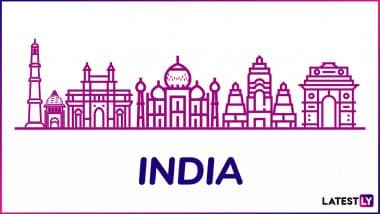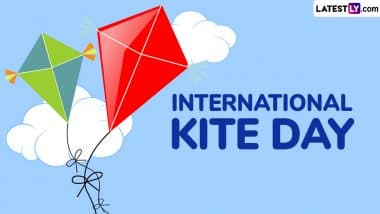New Delhi [India], Dec 10 (ANI): Union Commerce and Industry Minister Piyush Goyal on Tuesday backed the Centre's decision to not join the Regional Comprehensive Economic Partnership (RCEP), saying that the agreement in its current form did not adequately address India's concerns.Goyal informed the Rajya Sabha that India adequately put forth its concerns during the negotiations such as the country's relatively low per capita GDP as compared to the other member nations."Any trade deal like RCEP must consider that countries have very different sizes and population, unequal levels of economic development and human development indicators, contrasting levels of prosperity, investment capacity, cultural diversity and significantly different political and judicial systems," he said."During the RCEP meetings, we highlighted that India has a relatively low per capita GDP as compared to other RCEP countries, and there are concerns about the livelihood of our farmers and employment generation provided by the industrial sector, particularly the MSMEs," added Goyal."India focused on its demand for a level playing field, fair trade practices, transparency and market access. We also repeatedly cited serious concerns regarding the non-tariff barriers to trade, and opaqueness in the subsidy regime in some RCEP countries, and sought credible resolution of such issues," he said.The minister said that in addition, to be able to take advantage of regional value chains, all countries must ensure that the rules of origin are not circumvented. Since, RCEP in its current form did not adequately address India's concerns, joining it would be unfair to our interests.Goyal said that the government's priority is also to "correct the asymmetry in the existing agreements and maximise its export potential to benefit domestic industry and farmers to promote Prime Minister's vision of Make in India and doubling farmers' income.""In order to achieve this end, we are working with our existing FTA partners like South Korea and Japan to address our concerns. We have also secured an agreement to initiate a review of ASEAN-India Trade and Goods Agreement to make the AIFTA more user-friendly, simple and trade facilitative," he said.Goyal stated that under the leadership of Prime Minister Modi, "India continues to engage with the whole world as an equal partner and on the principle of reciprocity.""We remain committed to furthering India's trade interests in all future engagements in a fair, balanced and transparent manner, and protect the interests of our farmers, dairy, domestic industry, MSMEs, Startups, and entrepreneurs," he added.Speaking in the Upper House of Parliament, Goyal said the RCEP is a proposed Free Trade Agreement (FTA), which was being negotiated among 16 countries -- 10 countries of ASEAN (Brunei, Cambodia, Indonesia, Lao, Malaysia, Myanmar, Philippines, Singapore, Thailand and Vietnam) and their six FTA partners -- Australia, China, India, Japan, South Korea, and New Zealand."I would like to provide a snapshot of these negotiations and their current status within the limits of confidentiality to enlighten Members of this House of the developments associated with India's engagement with some of these RCEP countries on trade agreements, and our bold decision at the 3rd RCEP Summit under the visionary leadership of Prime Minister Narendra Modi not to join the Regional Comprehensive Economic Partnership," he said.Goyal said that countries enter into an FTA to provide a greater market for their exports as well as to source inputs for their domestic industry at competitive prices."We entered into FTAs in the period 2010-11 with ASEAN, South Korea, Japan and Malaysia. However, these have been asymmetrical and our experience has shown that India has not benefited to its expected potential from these," he said."A major reason has been that India gave much larger market access to some of these countries but received less in return. For example, in the ASEAN-India FTA (AIFTA), we enabled greater market access by eliminating tariffs on 74.4 per cent lines, however, some of the ASEAN countries eliminated tariffs on only 50.1 per cent and 69.7 per cent lines," the Union Minister said.A comparison of merchandise trade with these countries reveals that India's trade deficit from the date of implementation has steadily increased, Goyal stated."For example, the trade deficit with ASEAN from 2010-11 until 2018-19 increased more than 4 times from USD 5.0 billion to USD 21.8 billion. In fact, the merchandise deficit with all the RCEP countries increased more than nine times from USD 7.1 billion in 2003-04 to USD 65.1 billion in 2013-14," Goyal said.He went on to say that in the case of China alone, India's trade deficit rose 33 times, from USD 1.1 billion in 2003-04 to USD 36.2 billion in 2013-14."It is interesting that in 2006, the Government was exploring a trade agreement with China, and a recommendation was made to the Trade and Economic Relations Committee (TERC) headed by the Prime Minister for the conclusion of such an agreement with China. However, it was not pursued further given concerns over the widening trade deficit," Goyal said."Meanwhile, a group of countries, ASEAN+3 i.e. China, Japan and South Korea were negotiating for an FTA in 2009-10. On 2 November 2012, TERC at the highest levels gave approval for India to join negotiations under RCEP," he said.The minister said the mandate stated that staying out of RCEP was not a practical option. The decision to join RCEP was taken knowing fully well that India had existing FTAs with 12 RCEP countries (ASEAN countries, Japan and South Korea) or was negotiating such agreements with the other RCEP countries, except China."It was, therefore, a conscious decision, taken in 2012, to get into RCEP negotiations despite concerns that Chinese imports could adversely impact the domestic industry. Thus, ASEAN+6, which includes Australia, China, India, Japan, New Zealand and South Korea agreed to negotiate on an FTA known as RCEP seven years ago," he further explained.The guiding principles and objectives for negotiating RCEP, which were agreed by all nations including India in 2012, sought to achieve "a modern, comprehensive, high quality and mutually beneficial economic partnership agreement," Goyal said."One of the principles was to make it more liberal over the existing agreements between the ASEAN countries and other RCEP partners including the AIFTA," he said.India participated in the first RCEP Ministerial Meeting in August 2013 in Brunei.A Joint Ministerial Statement mentioned that the Ministers expressed enthusiasm for RCEP's potential to deepen economic ties, facilitate participation in regional and global value chains and broaden markets among participating economies."Thus, there was clear enthusiasm for RCEP at that time which, was endorsed by all 16 countries," he added.Goyal said that after May 2014, "maintaining our respect for continuity in international economic and trade engagements, the new government continued to negotiate RCEP in good faith."However, the government stood its ground on the issue of greater access for services in which India was competitive, continued to persevere for greater market access for our merchandise goods, and protecting the interests of our farmers, dairy, MSMEs, manufacturers, and several other sectors from unfair imports, he stated."India has consistently put its national interests to the fore during negotiations in the past five and a half years, but participated in a constructive manner with a view to achieving balanced outcomes, especially addressing domestic sensitivities," he said.Goyal said that the Central Government held regular stakeholder consultations with industry, exporters, trade experts, concerned Ministries/Departments and state governments for taking inputs for formulating India's position in the RCEP negotiations."More than 100 such consultations were held across various parts of the country, and inputs were taken from around 200 stakeholder groups on several occasions in respect of all sectors including agriculture and industry," he said."These stakeholder inputs and the concessions already made in the existing trade agreements were also taken into account in the negotiations. I also chaired many key stakeholder consultations in several cities," he said."However, as India's concerns and outstanding issues were not getting fully addressed, the Prime Minister took a considered position not to join RCEP, highlighting the fact that the current structure did not reflect the RCEP Guiding Principles or address the outstanding issues and concerns of India," he said."Further, he reiterated that the Act East Policy was the bedrock of India's economic policy and its engagement with ASEAN countries and other trading partners would continue," he added.The Union Minister stated that on a broad basis, the "concerns and outstanding issues relating to India pertain to the need for a balanced market access outcome across all pillars of the negotiations, fair trade practices, open market-based operations and transparency.""Prime Minister, in an interview given on November 2 said that 'India seeks balance across goods, services and investment, and also within each pillar'. He added, 'We too would like a win-win outcome. We believe that for this, addressing our concerns over unsustainable trade deficits is important. It needs to be recognised that opening the vast Indian market must be matched by openings in some areas where our businesses can also benefit'," Goyal said. (ANI)
(This is an unedited and auto-generated story from Syndicated News feed, LatestLY Staff may not have modified or edited the content body)













 Quickly
Quickly





















